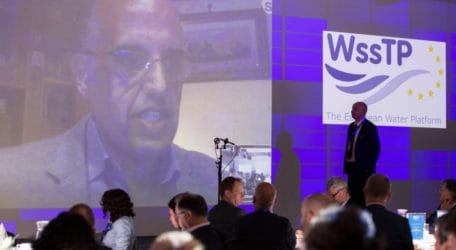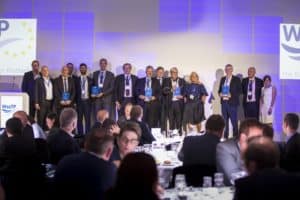
HSBC Malta wins Global Water Challenges prize
HSBC Bank Malta has been awarded the Global Water Challenges prize for its local water programme by the Brussels-based European Water Technology Platform (WssTP).
The Global Water Challenges prize recognises an entity that is innovative both in terms of sustainable solutions and the technologies utilised. The award is particularly dedicated to initiatives that contribute to achieving the water-related Sustainable Development Goals (SDGs) as adopted by the United Nations.
This award, alongside others, were presented during the annual Water Innovation Europe conference, held in Brussels, and which attracted participants from the water sector from across the continent and beyond.
In choosing the recipient of the Global Water Challenges, several things were considered by the panel of judges, including innovation, market potential, stakeholder co-operation and inclusiveness and replicability. According to the announcement, HSBC Malta Water Programme received the highest appreciation from the evaluation committee.
Congratulating HSBC Malta, Manuel Sapiano, Chief Policy Officer (Water) at the Energy & Water Agency, said: “Having followed HSBC Malta’s water programmes since their start five years ago, I can outline that this recognition is truly merited and it is something which the team at HSBC should be very proud of. WssTP is recognised by the European Commission as the industry-lead technology platform for water, and from my experience in previous collaboration with them they really aim for high standards.”
Since 2013, HSBC Malta has invested close to €1 million on various water projects in Malta, drawing funds and support from HSBC Group’s global Water Programme.
WssTP was initiated by the European Commission in 2004 for Research and Technology Development in the water industry. This year’s Water Innovation Europe conference was held in Brussels in June with the theme of ‘The road towards a water-smart society: Overcoming the water challenges of the future.’
- July 3, 2018 No comments Posted in: Environment Tags: HSBC, award, water & Energy agency





